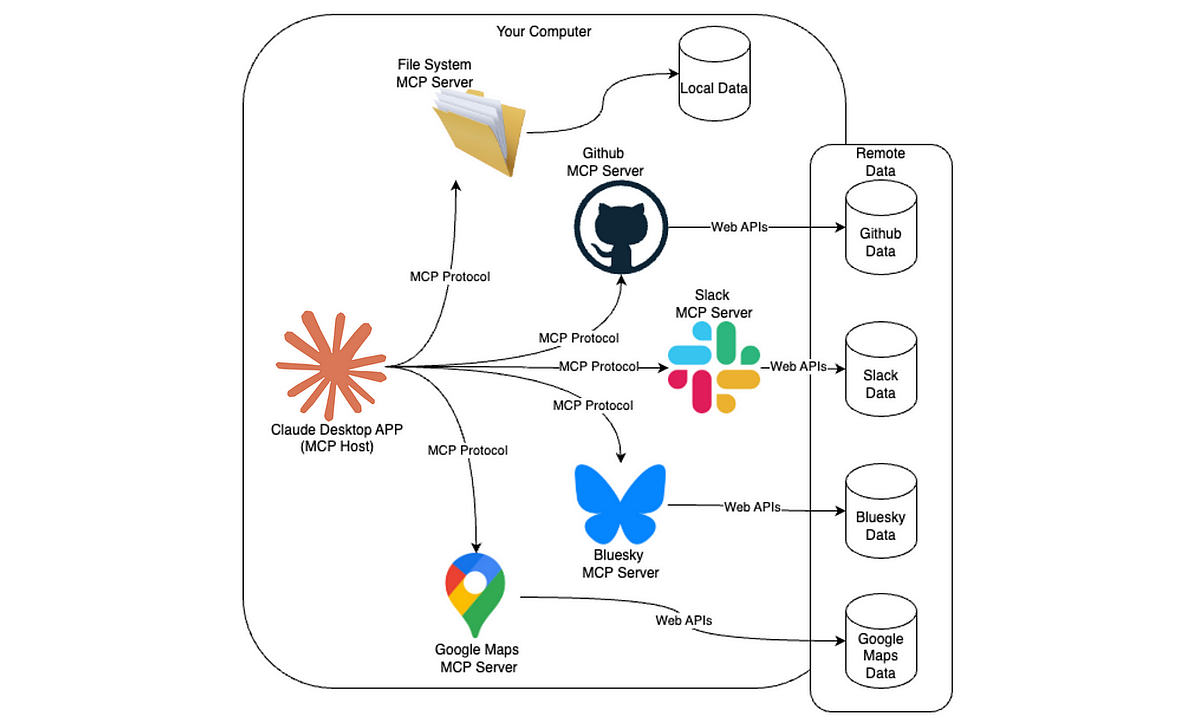Employee Retention Strategies for Marketing Agencies: Keeping Your Top Talent Engaged and Motivated
Share now


In an industry that thrives on creativity, innovation, and building strong client relationships, having a team of talented and motivated professionals is essential. High employee turnover can be detrimental to a marketing agency, leading to increased recruitment and training costs, loss of institutional knowledge, disruption in client service, and a decline in overall team morale.
However, retaining top talent in marketing agencies can be challenging due to several factors.
Competitive job market
The marketing industry is highly competitive, with a constant demand for skilled professionals . Top performers are often sought after by other agencies, as well as companies in other industries that recognize the value of marketing expertise. This makes it challenging for marketing agencies to retain their best employees, as employees leave who may be enticed by better job offers, remote work, or opportunities for career advancement.
Limited career growth opportunities
Marketing agencies often have a hierarchical structure, which can limit career growth opportunities for employees. Employees leave if they feel that their career progression is stagnant or that there are limited opportunities for advancement within the agency, they may be more likely to seek new challenges elsewhere.
Workload and burnout
The marketing industry is known for its fast-paced environment and high-pressure deadlines. Long hours, tight deadlines, and a constant need to stay updated with industry trends can lead to burnout among employees. When employees feel overwhelmed and overworked, they may become disengaged and seek a healthier company culture elsewhere.
Lack of recognition and rewards
Marketing professionals thrive on recognition for their creative ideas, successful campaigns, and contributions to the agency’s growth and professional development. If employees feel that their efforts are not acknowledged or that they are not adequately rewarded for their achievements, they may start looking for opportunities where their contributions are valued and appreciated.
Culture and fit
The culture of a marketing agency plays a significant role in increased employee retention. If there is a lack of alignment between how employees feel, their values, work style, and the agency’s culture, they may feel disconnected and less engaged. A strong and inclusive culture that fosters collaboration, creativity, and continuous learning can help retain valuable employees. Let us help you!
Understanding Employee Retention in Marketing Agencies
Employee turnover can have a significant impact on mental health, the agency’s operations, culture, and overall success
The Impact of Employee Turnover on Marketing Agencies
High employee turnover can be detrimental to marketing agencies in several ways.
- It leads to increased recruitment and training costs as agencies need to constantly find and onboard new talent.
- Turnover disrupts client relationships and service continuity, as clients may have to work with new human resource management or creative teams. This can impact client satisfaction and loyalty.
- It results in a loss of institutional knowledge and expertise, making it challenging to maintain consistent quality in work and deliver results.
- Frequent turnover can lower team morale, affecting collaboration and overall productivity.
Factors That Influence Employee Retention in Marketing Agencies
Several factors play a role in influencing new employee retention in marketing agencies. These factors can vary from agency to agency, but some common ones include:
- Offering competitive salaries, bonuses, and comprehensive benefits packages is essential for attracting new employees and retaining the best employees. It is important to stay updated with industry standards and ensure that employees are fairly compensated for their skills and contributions.
- Providing clear career growth paths, opportunities for learning and professional development, and chances to work on challenging and diverse projects are crucial for retaining employees. Marketing professionals value opportunities to enhance their skills, take on new responsibilities and advance in their careers.
- A positive work environment and a strong agency culture can contribute to effective employee retention. Factors such as a supportive and collaborative atmosphere, open communication channels, recognition of achievements, and a healthy company culture can foster employee engagement and loyalty.
- Effective leadership and management practices play a crucial role in effective employee retention. Managers who provide guidance, support, and mentorship, as well as opportunities for employees to contribute and be heard, are more likely to retain their team members. Clear expectations, regular feedback, and recognition for achievements are important for building strong manager-employee relationships.
- Actively engaging employees in their work, providing them with challenging and meaningful projects, and involving them in decision-making processes can enhance employee job satisfaction and commitment to the agency. Regular feedback sessions, employee surveys, and opportunities for improvement and innovation can contribute to higher employee engagement.
- Marketing agencies often have demanding workloads and tight deadlines. Supporting work-life balance by offering flexible work arrangements, promoting employee well-being, and providing resources for managing stress can help prevent burnout and improve retention.
- The reputation of the marketing agency, its client portfolio, and the quality of work it produces can influence employee retention. A strong reputation, prestigious clients, and exciting projects can attract and retain employees who want to work on impactful campaigns and enhance their professional portfolios.
Best Practices for Employee Retention in Marketing Agencies

Competitive Compensation and Benefits
Offer competitive salaries and incentives to attract and retain valuable employees. Regularly review compensation packages and ensure they align with industry standards. Provide health and wellness benefits that support employees’ well-being.
Work-Life Balance and Flexibility
Promote work-life balance by offering flexible working arrangements, such as flexible hours or remote work options. Allowing remote work employees to have control over their schedules and provide support for managing personal and professional commitments proves a plus for retaining employees.
Career Development and Growth Opportunities
Provide employees with opportunities for career development and growth. Offer training and professional development programs that enhance their skills and knowledge. Implement mentorship and coaching initiatives to support their professional growth.
Employee Recognition and Rewards
Recognize and reward employees for their contributions and achievements. Implement a formal recognition program that acknowledges outstanding performance and encourages a culture of appreciation. Consider performance-based rewards to boost employee retention and incentivize high-quality work.
Positive Work Environment and Culture
Foster a positive work environment that promotes open communication and feedback. Encourage collaboration and teamwork through a supportive and inclusive company culture. Organize company events and activities that foster team bonding and create a sense of community.
Implementing Employee Retention Strategies in Marketing Agencies

Implementing effective employee retention strategies in marketing agencies involves a systematic approach to assessing, planning, communicating, and monitoring retention efforts.
Assessing Current Retention Rates and Identifying Areas for Improvement
Begin by analyzing current retention rates and identifying trends and patterns. Look for factors contributing to turnover and determine which positions or departments have the highest turnover rates. Conduct exit interviews or surveys to gather feedback from departing and new employees both. This assessment helps identify specific areas that need improvement and informs the development of targeted employee retention strategies.
Developing a Comprehensive Retention Plan
Based on the assessment, create a comprehensive employee retention strategy and plan that addresses the identified areas for improvement. The plan should include specific employee retention strategies, initiatives, and actions to enhance employee retention. Consider the various factors discussed earlier, such as competitive compensation, career development opportunities, work-life balance, recognition programs, and a positive work environment. Set realistic goals and allocate resources to support the execution of the plan.
Communicating Retention Initiatives to Employees
Transparent communication is key to ensuring employees are aware of the agency’s commitment to retention and understand the initiatives being implemented. Communicate the rationale behind the employee retention strategies, the goals of the plan, and how it aligns with the agency’s vision and values. Regularly update employees on retention strategy in progress and provide opportunities for feedback and suggestions.
Monitoring and Evaluating Retention Efforts
Establish mechanisms to monitor and evaluate the effectiveness of the retention strategies. This can include tracking employee retention tips for managers and rates, conducting employee satisfaction surveys, and gathering feedback from employees. Monitor key metrics, such as turnover rates, time to fill vacancies and employee engagement scores. Regularly review and analyze the data to identify areas of success and areas that need improvement. Adjust the retention strategy as needed based on these findings.
Overcoming Common Retention Challenges in Marketing Agencies
Overcoming common retention challenges in marketing agencies requires proactive measures and targeted strategies to retain employees.
Addressing Burnout and Stress
- Encourage employees to prioritize self-care and maintain a healthy work-life balance. Offer flexible work arrangements, such as remote work options or flexible hours, to help reduce stress and accommodate personal needs.
- Monitor workloads and ensure they are reasonable and manageable. Avoid overloading individuals with excessive responsibilities and provide necessary resources or support to help them meet deadlines.
- Create a supportive and inclusive work environment where employees feel comfortable seeking help or discussing their challenges. Encourage open communication and provide resources for stress management, such as wellness programs or counseling services.
- Encourage employees to take regular breaks and utilize their vacation time. Discourage a culture of overwork and promote the importance of rest and rejuvenation.
Retaining Top Performers in a Competitive Industry
- Offer competitive salaries, performance-based incentives, and comprehensive benefits packages to attract and retain employees. Regularly review and adjust compensation to ensure it aligns with industry standards.
- Provide clear pathways for career development and growth within the agency. Offer training programs, mentorship, and challenging projects that allow top performers to enhance their skills and advance in their careers.
- Implement a culture of recognition and reward where top performers are acknowledged and appreciated for their contributions. Offer opportunities for advancement, bonuses, or special recognition to incentivize and retain existing employees.
- Actively engage top performers by involving them in strategic initiatives, decision-making processes, and high-impact projects. Provide opportunities for them to showcase their skills and make a meaningful impact within the agency.
Managing Turnover in Leadership Positions
- Implement a robust succession planning process to identify and develop potential leaders within the organization. This ensures a pipeline of talent and minimizes disruptions caused by sudden leadership turnover.
- Offer leadership development programs and training opportunities to groom employees for future leadership roles. Provide mentoring and coaching to support their growth and prepare them for increased responsibilities.
- Maintain open and transparent communication with leaders regarding the agency’s vision, goals, and changes. Encourage leaders to share their insights and concerns, and actively address any issues or challenges they may face.
- Recognize and reward leaders for their achievements and provide growth opportunities to keep them engaged and motivated. Offer competitive compensation and benefits to retain top leaders and ensure their continued commitment to the agency.
Case Studies of Successful Employee Retention Strategies in Marketing Agencies
HubSpot
HubSpot , a leading marketing software company, has been recognized for its successful employee retention strategies. They prioritize employee development and growth by providing extensive training programs, opportunities to attend industry conferences, and access to internal learning resources. HubSpot also offers competitive compensation and benefits packages, including stock options, to attract and retain top talent. They emphasize a positive work culture and a strong sense of community through team-building activities, recognition programs, and employee-driven initiatives. These efforts have contributed to high employee satisfaction and retention rates.
Key Takeaways :
- Invest in employee development and growth opportunities.
- Foster a positive work culture, job satisfaction, and sense of community.
- Offer competitive compensation and benefits packages.
Wieden+Kennedy
Wieden+Kennedy , a global advertising agency, focuses on creating a supportive and collaborative work environment. They emphasize work-life balance by offering flexible work arrangements and encouraging employees to pursue their passions outside of work. Wieden+Kennedy provides opportunities for employees to work on high-profile campaigns for renowned brands, which raise employees’ job satisfaction, and retention. They also prioritize diversity and inclusion initiatives, fostering an inclusive culture that values different perspectives and experiences.
Key Takeaways
- Prioritize work-life balance and flexibility.
- Provide opportunities for employees to work on exciting projects.
- Foster a diverse and inclusive work environment.
Employee retention is crucial for marketing agencies due to several reasons. It reduces recruitment and training costs, ensures client satisfaction and continuity, maintains institutional knowledge and expertise, and promotes job satisfaction and positive work culture. Retaining employee loyalty contributes to higher productivity, employee morale, employee feedback, and long-term agency success. See our success stories!
The post Employee Retention Strategies for Marketing Agencies: Keeping Your Top Talent Engaged and Motivated appeared first on 8 Figure Agency.



